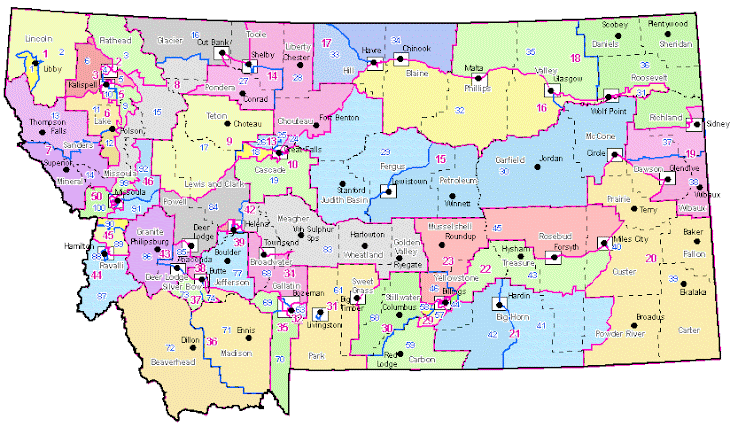while Montana's state legislature is considering HB 246 and HC 228 and joint house HJ 26 (see these items in postings below this one.)
Federal Land Anti-Gun bill on the move
Lost in all the news of the massive bailout bill that just passed the Senate is another enormous bill, one that increases federal control of public and private land.
Of particular concern to gun owners is that the bill, S. 22, will greatly expand the amount of land controlled by the National Park Service. NPS land is currently subject to a gun ban.
While President Bush took steps in the waning days of his presidency to reverse the ban, the new regulations apply to persons who carry a concealed firearm with a permit. Non-permit holders and open carry are not explicitly addressed.
Another eyebrow-raising aspect of this bill is that it is actually a compilation of over 150 separate pieces of legislation that never passed out of Congress on their own merits.
Senator Tom Coburn (R-OK) successfully held up over 100 of these bills, until anti-gun Senate Majority Leader Harry Reid rolled all of the bills into one so-called Coburn Omnibus and forced it through the Senate in January on a vote of 73-21.
As the House prepares to take up the bill, the Democrat leadership has taken procedural steps to ensure that the measure cannot be amended or altered in any way. That means that if it passes the House, it goes right to President Obama’s desk, where it will be signed into law.
Here are a few of the more troubling aspects of the bill:
· It authorizes the federal government to buy private land adjacent to national parks and trails. Such land would be controlled by the NPS, and thus be subject to the gun ban.
· The bill federalizes the Washington-Rochambeau Route, a 650 mile trail that stretches from Rhode Island to Virginia and includes sections of major thoroughfares such as Interstate 95 and U.S. Route 1, and passes through cities like Boston and Philadelphia. The entire trail would fall under the NPS and the gun ban.
· The National Landscape Conservation System groups together millions of acres of federal land and places it under one new umbrella agency. The NLCS was created during the Clinton administration and run administratively since then. S. 22 will codify the system, which raises concerns for hunters and sportsmen. Much of this land is consolidated from the BLM and the Forest Service, which have always allowed hunting and recreational shooting. It is unclear what rules will be promulgated by the new agency and if gun owners’ rights will be protected.
· S. 22 strips out small concessions won by pro-gunners in the House last year that would allow state and local law to govern firearms possession and hunting on certain land.
· S.22 allows for NO amendments. Pro-gun members who want to offer an amendment to fully repeal the NPS gun ban are prevented from doing so by the anti-gun leadership.
The full House of Representatives is scheduled to vote on the bill this Wednesday or Thursday.
Unless the NPS gun ban is repealed and the rights of gun owners are protected, Gun Owners of America opposes the bill in its entirety.
ACTION: Urge your US Representative to repeal the NPS gun ban in S. 22, or to vote against the entire bill. You can use the Gun Owners Legislative Action Center (© 2008 by Gun Owners of America) pre-written e-mail message below to send your Representative or compose your own letter:
__________________
Dear Representative:
I urge you to oppose S. 22, a bill that will greatly expand the amount of land controlled by the National Park Service (NPS).
NPS land is currently subject to a gun ban. While President Bush took steps in the waning days of his presidency to reverse the ban, the new regulations apply to persons who carry a concealed firearm with a permit. Non-permit holders and open carry are not explicitly addressed. Which is why S. 22 raises so many concerns:
* It authorizes the federal government to buy private land adjacent to national parks and trails. Such land would be controlled by the NPS, and thus be subject to the gun ban.
* The bill federalizes the Washington-Rochambeau Route, a 650 mile trail, and places it under the NPS gun ban.
* S. 22 will codify the National Landscape Conservation System, which raises concerns for hunters and sportsmen. Much of this land is consolidated from the BLM and the Forest Service, which have always allowed hunting and recreational shooting. It is unclear what rules will be promulgated by the new agency and if gun owners’ rights will be protected.
* S. 22 also strips out small concessions which were won in the House last year that would allow state and local law to govern firearms possession and hunting on certain land. But the anti-gun House leadership is preventing any amendments to fully repeal the NPS gun ban.
If these concerns are not corrected in S. 22, I would strongly urge you to vote against it.
Thank you.
Sincerely,
____________






No comments:
Post a Comment